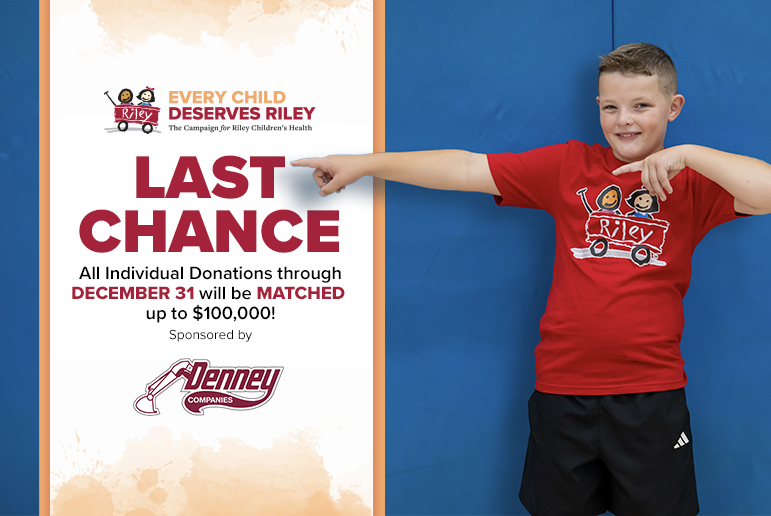A Riley victory for kids in Africa and at home

We all know that Riley doctors and researchers help the children of Indiana.
Sometimes, they also help kids all over the world. It happened again this month.
The principal investigator of this groundbreaking multi-center study was Chandy John, M.D., M.S., who leads the Infectious Diseases and Global Health research program at Riley’s research facility, the Herman B Wells Center for Pediatric Research. He conducted the study with his colleagues Robert Opoka from Makerere University in Uganda, an expert on pediatric clinical trials in low resource settings, and Russell Ware from Cincinnati Children’s Hospital and Medical Center, an expert in hydroxyurea use in sickle cell disease.
This study, called Novel use of Hydroxyurea in an African Region with Malaria (NOHARM), had one main goal: to see if a sickle cell anemia drug that’s commonly used in the United States could also be used safely in African countries with high malaria risk.
The drug, hydroxyurea, has been shown to have huge benefits to kids with sickle cell anemia. It means they spend less time in the hospital and have fewer episodes where their sickle-shaped blood cells get backed up and cause excruciating pain (called a “pain crisis” in the sickle cell community). But until now, this beneficial drug has not been used in Africa―where 90 percent of the world’s children affected by sickle cell anemia live―because of concerns that it might increase risk of malaria.
Dr. John and his team weren’t okay with the status quo. They decided to dig deep and find out once and for all if this drug could help that underserved population in Africa as much as it helps American kids.
It paid off. The study found African children who received the drug actually had slightly fewer malaria cases, not more. Not only that, these kids saw a 40 percent reduction in problems created by their disease. “Having an intervention for most of the kids who have this disease is revolutionary,” says Dr. John. “This is a neglected population. Many children in Africa who have sickle cell disease, upwards of 50 percent, die before age 5.”
Sometimes studies like this are published, and then nothing changes. Not this time.
Uganda’s Minister of Health, Jane Aceng, was so compelled by the study after Dr. John and his team presented their findings that she directed her nation’s drug authority to fast-track approval for the drug. She also called for a plan to make it affordable and widely distributed. They hope to have it approved within three months. “That’s what made me most excited,” says Dr. John. “We are all thrilled about the immediate impact this study is making on children’s lives.”
It’s the kind of victory that helps kids across the sea, and right here in Indiana.
“I see us as being good ambassadors to the world,” says Dr. John. “When we take what is great here in Indiana and expand it to a worldwide population, that good will comes right back to Indiana in terms of reputation and the quality of medical students, residents, fellows and physicians who want to come here to provide care. It makes Riley all the more attractive. When our work has both local and global significance, it makes a powerful difference.”
